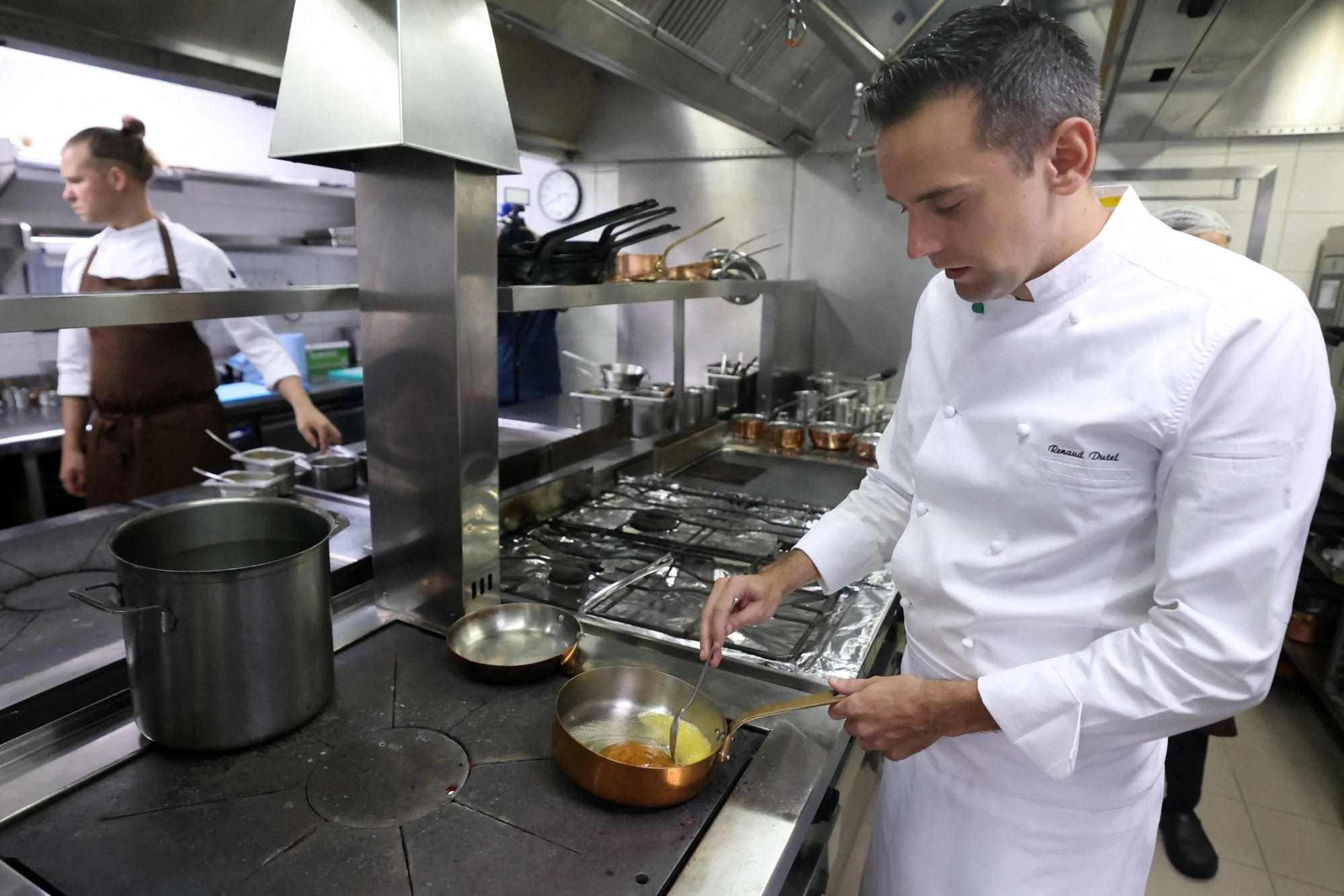- Dubai wants to establish itself as a center for luxury by growing its fine dining industry. It helped to rank first in the Middle East with a Michelin Guide.
- Gordon Ramsay and renowned French chefs have been drawn to the emirate, and today’s creative homegrown chefs offer fusion cuisine that represents the global aspect of the region. Although French chef Renaud Dutel never imagined that his work would take him to Dubai, the United Arab Emirates, he has discovered that the city is developing into a culinary center.
Dutel is happy to have “taken the risk” five years after accepting an invitation to work at a posh restaurant in the Gulf financial and tourism center known more for its skyscrapers than its culinary scene.
Sitting next to a skillet of sizzling lobster, he remarks, “I think Dubai is at the starting point, but is on the way toward becoming one of the top places in the world to come to dine.” Stay is a Michelin-starred restaurant serving French cuisine and is located on the city’s famous man-made Palm Jumeirah island.
There are almost 13,000 eateries and cafes in Dubai, some of which are already well-known worldwide.
The first Michelin stars were given to 11 restaurants in Dubai in 2022, and more are expected to join the esteemed group this year. Michelin’s top rating of three stars was attained by only a few, including Yannick Alléno’s Stay, which received two stars.
Issam Kazim, who works in the tourist and economy department of the local government, stated that Dubai’s gastronomy scene has made the city one of the world’s most vibrant and diverse culinary centres.
Not as rich in gastronomic history as other Arab states, the United Arab Emirates (UAE) is a five-decade-old federation of seven emirates on the eastern coast of the Arabian Peninsula.
Historical trading connections with modern-day Iran and Korea have had a significant influence on the meat-heavy Emirati cuisine.In contrast to many Western culinary traditions, it did not experience the “gastronomization,” according to Loïc Bienassis of the European Institute for the Cultural and Historical Study of Food. Still, he believes, it “can be done.” “And political will has a part to play.”
The city has developed a distinct culinary identity since foreigners now make up a large majority of the native Emirati community.
Moonrise’s co-owner and head chef, Solemann Haddad, characterized the cuisine as having three distinct flavors: Arabic, Japanese, and European, with a final touch of “100% Dubai.”
At the age of 27, Haddad, who was born in the city to Syrian and French parents, was awarded the coveted Michelin star in 2022.He claims that his recipes capture the multicultural essence of Dubai by fusing ingredients like date syrup with chutney.
Dubai has become a hub for business and luxury, and now it’s drawing some of the biggest names in food from around the globe, like Alléno and fellow Frenchman Pierre Gagnaire.
He claims that a fresh, youthful generation of domestic chefs is emerging. “Many of them are becoming well-known throughout the world.”
In addition to chefs, several of Dubai’s rising culinary stars are restaurateurs, such Omar Shihab, who was born in the United Arab Emirates into a Jordanian family.
This year, Boca, the restaurant he established, received a Michelin Green Star for sustainability.
Shihab gets the majority of his goods from the United Arab Emirates, which is remarkable considering that the nation imports more than 80% of its food.
“Let’s face it, we live in the desert,” he says, “but through our sourcing policy, we prioritise local ingredients.”
Some 30-40 per cent of fruit and vegetables served at Boca come from hydroponic Emirati farms, and up to 80 per cent of the fish is sourced from the UAE or nearby shores, says Shihab.
He claims, “We don’t have either local or regional suppliers” for meat and poultry, but we do make sure the farms we depend on are known by name. We know a little bit about their practices, no matter where they are in the world.”

